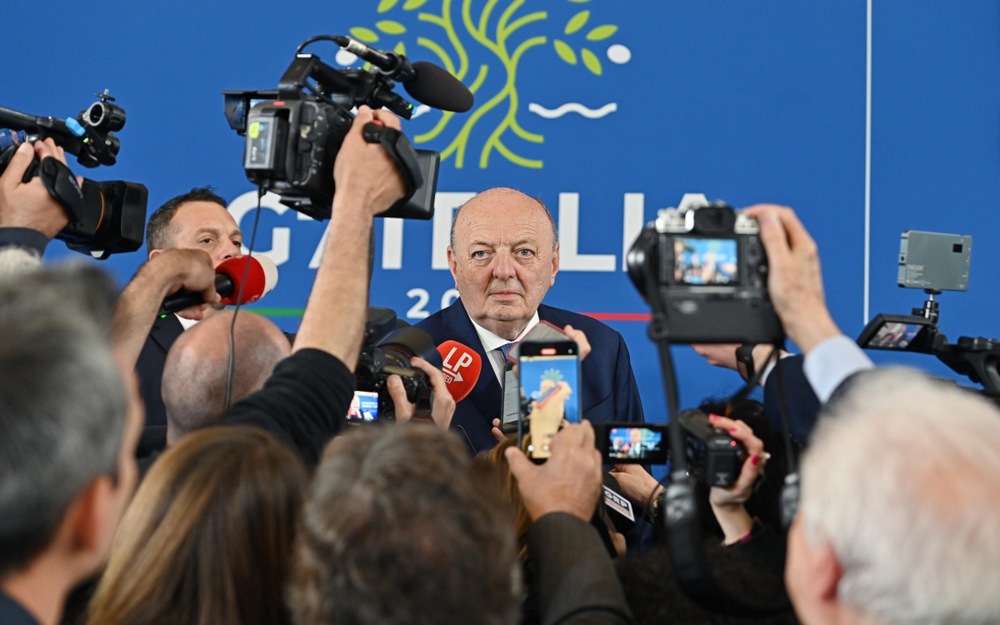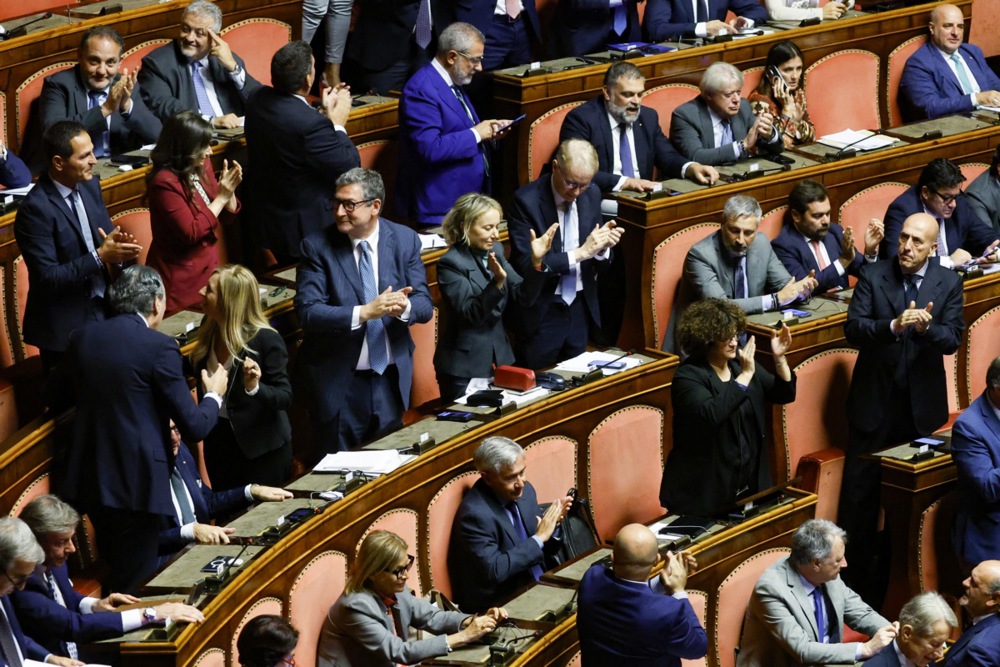With COP29 underway in Baku, a growing number of European leaders have highlighted the importance of nuclear energy in producing clean energy, breaking with older rhetoric focusing solely on renewables.
Both Czech PM Petr Fiala and Italian PM Giorgia Meloni stressed nuclear power was essential for achieving global climate goals.
Speaking on the second day of the international climate conference in Azerbaijan’s capital, the Czech prime minister called for realism and emphasised the need for achievable and balanced climate targets.
“We will discontinue coal, and we will push for renewables and nuclear power. Nuclear power is essential to meet our climate goals, as it produces extremely clean energy and is also very safe. The Czech Republic has over 50 years of experience in nuclear power, and we are ready to assist any country,” Fiala said.
A similar message came from Giorgia Meloni, who stressed she had “a realistic vision” and added that “as a mother” she “work[s] for a better world.”
“Nature must be defended with man at the centre. An overly ideological and non-pragmatic approach to this issue risks leading us astray towards success. The right path is that of technological neutrality, because there is currently no single alternative to sourcing from fossil fuels,” Meloni said.
In this light, she continued, “We must use all the technologies available. Not only renewables, but also gas, biofuels, hydrogen, CO2 capture and, in the future, nuclear fusion that could produce clean, safe and unlimited energy. Italy is at the forefront of nuclear fusion.”
“As part of our presidency of the G7, we organised the first meeting of the Global Fusion Energy Group promoted by the International Atomic Energy Agency. We intend to revive this technology that could change history as it can transform energy from a geopolitical weapon to a widely accessible resource.”
Fiala and Meloni both emphasised combatting climate change was a global task.
Ahead of his speech, Fiala told journalists in Baku Europe could not save the climate on its own, and efforts to reduce emissions should not hurt economic growth, competitiveness, or living standards.
He warned against setting climate goals which could jeopardise future prosperity in Europe.
Global oil producer Shell has won a landmark climate case in the Dutch courts, annulling an earlier ruling that forced the multinational to cut 45 per cent of its emissions compared to 2019. https://t.co/yEa5IlgdTJ
— Brussels Signal (@brusselssignal) November 12, 2024
Meloni said achieving the climate goals set in Dubai, which aim to triple the world’s renewable energy generation capacity and double the global rate of improvement in energy efficiency by 2030, required cooperation from everyone and it was necessary to share responsibilities between developed nations, emerging economies and developing economies.
Fiala said climate change could worsen critical global issues, like hunger and poverty, and called for collective action.
“We must not give up. The Czech Republic is ready to do its part to prevent suffering and increase the chances for a good life for all,” said Fiala.
Meloni added the decarbonisation process should take the sustainability of Europe’s production and social systems into account.
“Nature must be defended with man at the centre. An overly ideological and non-pragmatic approach to this issue risks leading us astray towards success,” she said.
COP29 appeared so far to have adopted a different tone than other climate summits.
This has been exemplified by Azerbaijani President Ilham Aliyev, who used his keynote speech to highlight his country’s shift to renewables, but at the same time praising oil and gas as “a gift from God”.
He went on to attack the EU and the US over what he called their “double standard”. They kept producing and using those energy sources on a large scale, he said, with the EU buying even more gas from Azerbaijan than in the past.
Aliyev also took a swipe at France in particular, over its “neocolonialism” towards New Caledonia and French Polynesia. This prompted France’s ecology minister, Agnes Pannier-Runacher, to cancel her trip to Baku.
Argentina also withdrew its negotiating team. Argentina’s PM Javier Milei opposed the “imposition of regulations” and the “globalist climate agenda” which in the end would hurt developing countries the most, he said.
Muhammad Yunus, interim leader of Bangladesh, said rich countries were humiliating poorer ones, forcing poorer countries to beg for money to fix problems rich nations caused in the first place.
Shehbaz Sharif, prime minister of Pakistan, meanwhile demanded more money for countries like his to reach their climate goals.





